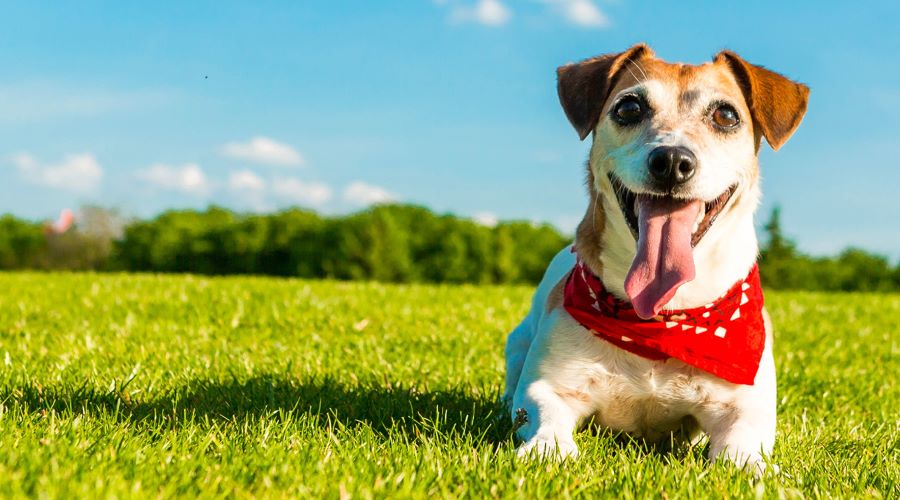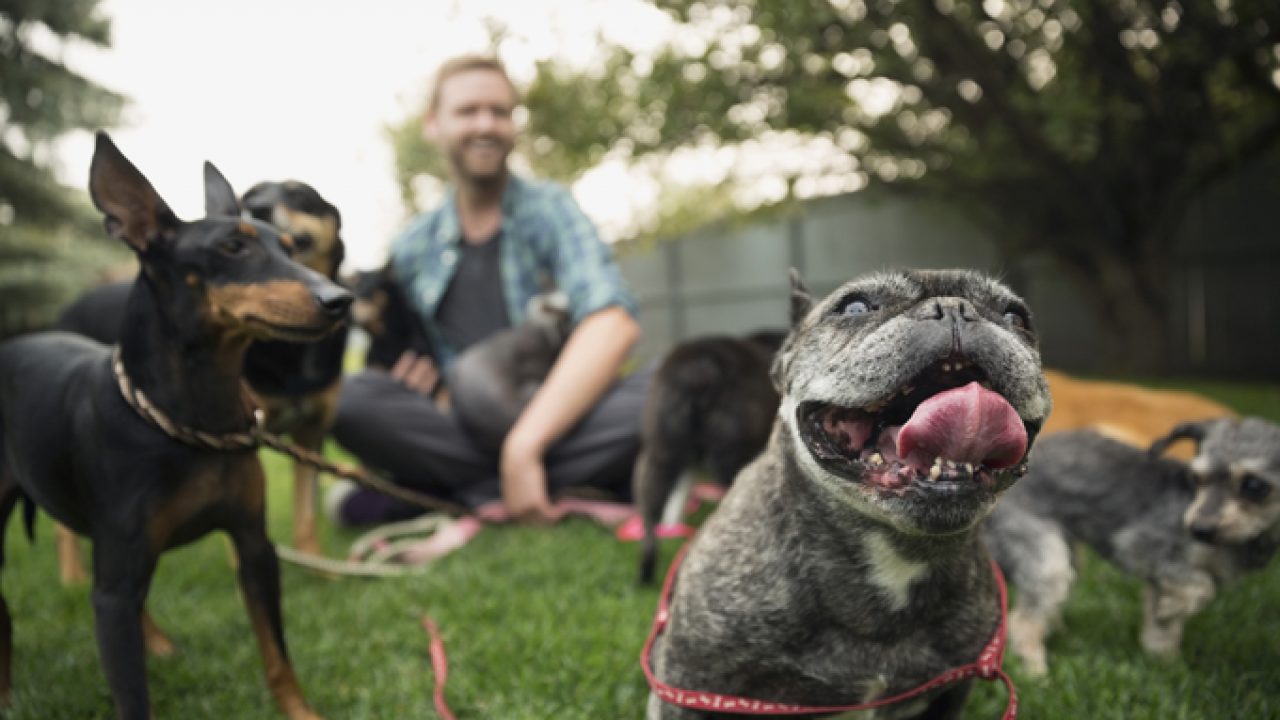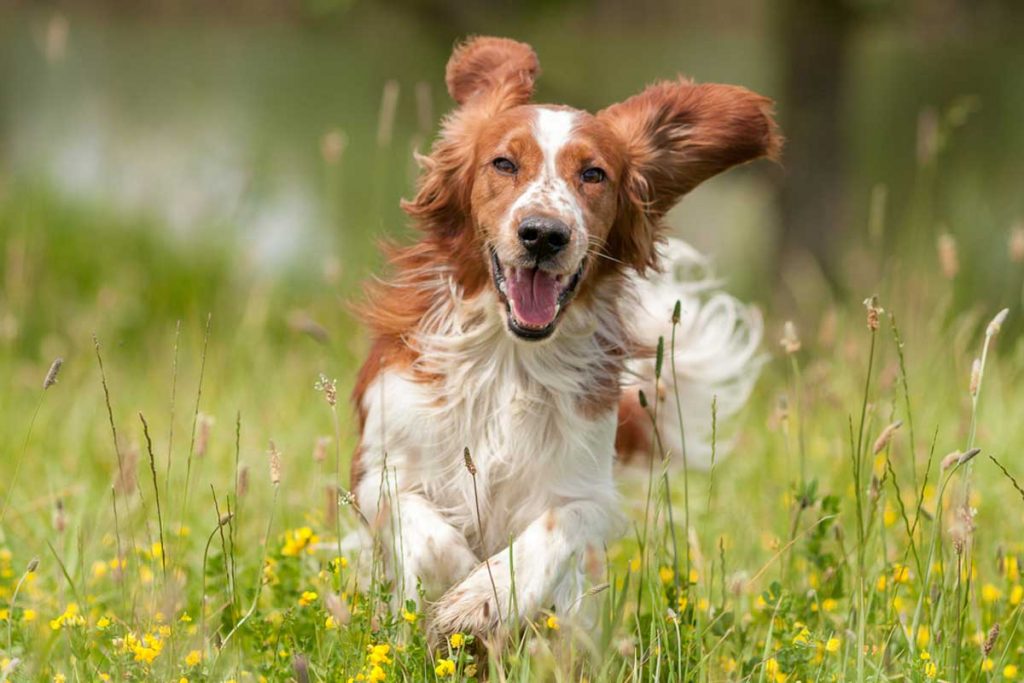Dogs become our friends, partners, and playmates, but most of the time, they leave us early, creating a void in our lives. The leaving of a dear companion may be inevitable, but health and happiness are paramount for longevity. The physical health of a dog matters a lot, but their mental health is of tremendous importance. Here are some of the essential tips to ensure that your beloved kid lives a long and healthy life.

1. Proper nutrition
Proper nutrition and a balanced diet are a necessity for any living being. To make your furry kid live a long life, feed him the right amount of food so that you can avoid any obesity-related problem. You also require to take care of what kind of food you are providing your pet and monitor if they are eating anything else they are not supposed to. You should make sure that you can feel the ribs of your dogs properly. You should always consult your vet regarding the shape of your dog.
You should know how many calories your dog should really need and give him a balanced diet accordingly, also check with your vet if there is any need for supplementary food. Feed him enough fresh water and not treat him more than 10% of the daily calorie needs. Proper planning on your part will keep your dog healthy and happy. Try to use fish oil in his food. Adding omega-3 fatty acid to your dog’s diet will help him with allergies, itching, skin problems, and inflammation. It is also helpful with arthritis, kidney diseases, or high cholesterol.
2. Exercise
Intake of the stipulated amount of calories requires burning that calorie. The best way to achieve this is through exercise. Physical activities like walking regularly, swimming in the bathtub, and playing games like fetch can help a lot stimulate proper blood flow to stay fit. If he is too lazy to play fetch, you can hide dry kibble within the ball to lure him. Encourage them to play with toys. However, do not dump too much on him at a time. Go through a step-by-step process.
Even inside the home, try to keep him physically active, spread kibble pieces around the room for him to find. Bribe him with his favorite treat after he comes back from a walk outside. To keep things interesting, you can make obstacles in front of him for him to overcome. The stimuli of sight and smell are also important, so take him on a walk through different routes to engage his sense organs more. Make sure the exercises at least 20 minutes per day. To find the right amount of activity, let him take a nap. If it is a short nap, he is getting appropriate exercise. If he sleeps a lot, then probably you are overdoing it.
3. Regular Checkups
A regular wellness exam is an excellent opportunity to perform several health-related examinations on your dog. This screening helps detect any severe disease at an early stage or any warning signs related to it so that required preventive measures can be taken quickly. Sometimes, if he doesn’t want to do physical work, maybe his joints are hurting. If his muscles seem stiff or he is limping, then proper medication would be necessary.
He may also need therapeutic exercises. You may want to take him to a nearby rehabilitation center. The dental checkup should also be done regularly. There can be plaque or tartar buildup in the teeth, which needs to be removed. Use only the toothpaste specifically designed for dogs as they will eat the kinds of toothpaste for humans, leading to stomach problems.

4. Preventive medication
The next step, which comes after a checkup, is preventive medication. Preventive medication can help to solve complicated problems like tick-borne illness, heartworm, or flea-related problems at an early stage. Medications for the teeth will also help to solve various periodontal diseases that may cause severe problems later.
5. Regular blood tests
The potency or consistency of a substance in a solvent is known as titer. To check the immunological response of a dog, sometimes a blood test is done. The concentration of immunological response against various viruses is measured. These are known as vaccine titers, and if there is a satisfactory amount of vaccine titers present in the blood, he is supposed to have a proper immune response. Moreover, it is checked that if these vaccine titers can also trigger an immunologic memory for future virus attacks. If there are not enough vaccine titers in the blood, he would need further vaccination against the same disease.
6. Give your dog a bone
A bone will provide your dog with the necessary oral exercise and help cleaning their teeth. Particularly the joint bones are great for your dog’s health as it is tender and still contains some tendons and muscle meats attached; it also supplies certain beneficial nutrients. Moreover, this will provide your dog with plenty of natural calcium for strengthening his bones. Raw bones are preferred overcooked or sterilized bones as there can be fragments in cooked bones that would harm your dog. Also, the bones lose its nutritional value when it is cooked or sterilized.
7. Grooming
Grooming involves trimming the nails and hairs of your dog, which needs to be done regularly. Clean the ears of your dog with different pieces of cotton wool for different ears. Do not use earbuds as they can be harmful. Check for unpleasant smells in your dog’s ear, which can be due to ear mites or canker problems. Bath him at least a couple of times a week. Grooming prevents eye irritation as the long fur may fall on the eyes of your dog, causing problems. Brushing the excess fur off of your dog is extremely necessary. The accumulation of dead fur may lead to specific skin problems and irritation. Brush him every day and not just when it may seem necessary.
This will also help him get familiarized with the process, and they will not get uncomfortable or scared when you do it. In floppy-eared dogs, there is a chance of ear infection which can be prevented by trimming the fur. Grooming will also help you keep an eye on skin-related problems like bald patches, dandruff, or dry skin. You can also check for any unwanted bumps or lumps that can be an area of concern. Various pet clinics also offer grooming services, and you can check with your vet for the best grooming protocol for your dog.
8. Affection
You need to form a strong relationship with your dog. Show him that you love him through belly rubs, petting, and cuddling. This will help you establish a strong emotional bond with your pet, keeping him free of stress. If he cries or whimpers for no reason, chances are, he is facing anxiety issues. The fear of separation is a common problem. When he exhibits such behavior, try to have a positive interaction with him. Your love and affection will reassure him. If the still problem persists, then your pet may need medical attention.

9. Socialization
Socialization during the formative years, i.e., when he is 16 to 18 weeks old, will decrease his chance of being antisocial or aggressive during his adulthood. You need to make sure that he gets proper exposure. Not just during an early age, your dog needs proper human and animal interaction throughout their lives. You may take him for a visit to your family or friends. You can take him to the dog park for a stroll or let him spend some time in the daycare to enhance his socializing skills.
10. Spay/neuter
Spaying/ Neutering your pet will have a lot of health benefits. Firstly, it will reduce their chances of wandering away from home in search of a mating partner. It will reduce the chances of prostate issues in males and urinary tract infections in females. It will also make them well-behaved as they won’t be agitated by their cycles. As there will be no change in hormones, male dogs are less likely to fight or be aggressive. This will reduce the chance of testicular cancer in males and ovarian or uterine cancer in females.
Like humans, you need to keep your dog’s brain active. After all, he is an intelligent kid who will want to explore the world just like you. The tips mentioned above will help you keep your furry friend happy and healthy and if any problem arises, talk to your vet immediately. If you are trying to find some suitable veterinarians near you, you should visit the GreatVet website. They will provide you with a comparative analysis of the best vets in your area.
